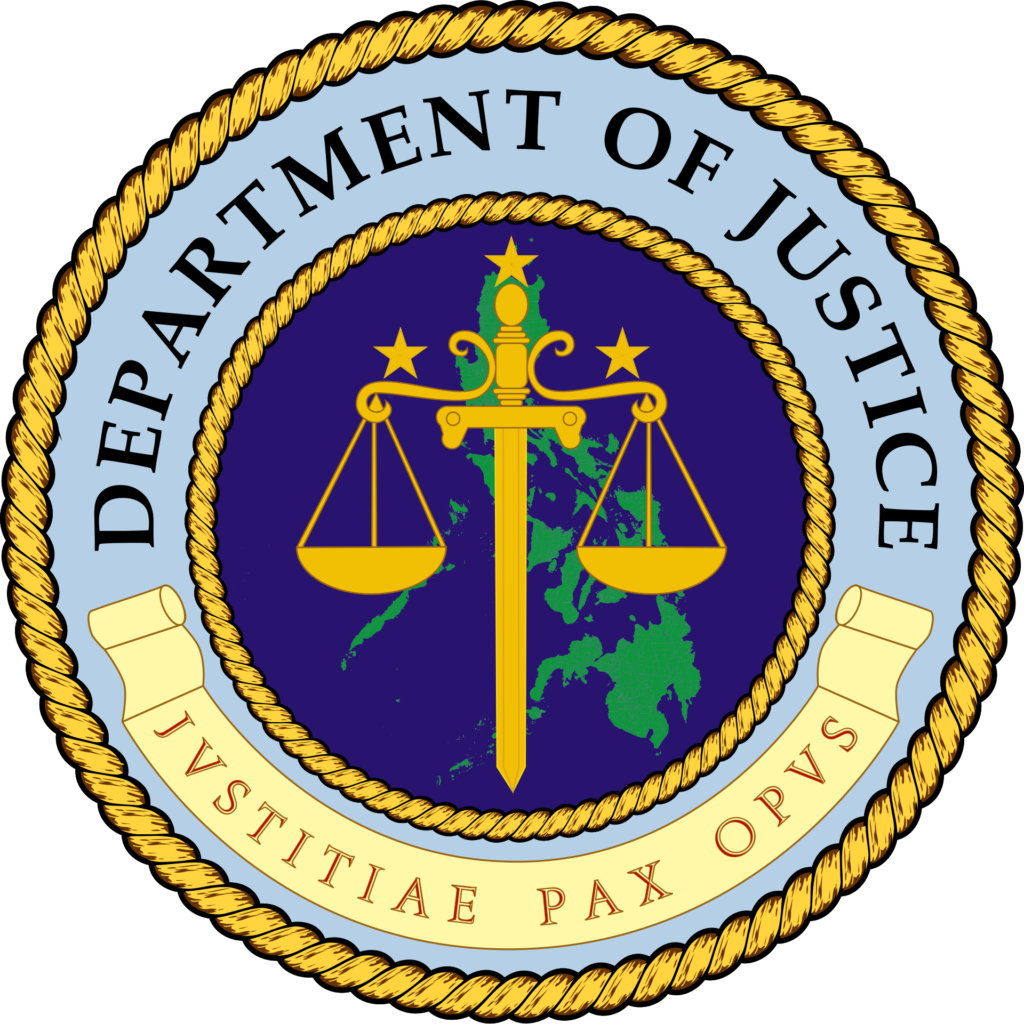The Department of Justice (DOJ) of the Philippines plays a crucial role in the country’s legal and justice system. It serves as the principal law enforcement arm of the government and is responsible for upholding the rule of law.1 This blog post aims to provide a comprehensive overview of the DOJ, its functions, its structure, and its significance in the Philippine society. We will delve into the department’s various bureaus and offices, exploring their specific roles and contributions to the administration of justice. Understanding the DOJ’s operations is essential for every Filipino citizen, as it directly impacts their rights and access to justice. We hope this exploration will shed light on the crucial work the DOJ undertakes to ensure a fair and just society for all.
Understanding the Mandate of the DOJ
The DOJ’s mandate is broad and encompasses a wide range of responsibilities. At its core, the department is tasked with upholding the rule of law by ensuring that laws are properly enforced and that those who violate them are brought to justice.2 This involves investigating crimes, prosecuting offenders, and representing the government in legal proceedings.3 The DOJ also plays a key role in providing legal advice to the President and other government officials, ensuring that their actions are in accordance with the law. Furthermore, the department is responsible for overseeing the administration of the country’s correctional system, ensuring the humane treatment of prisoners and their rehabilitation.4 The DOJ’s work touches the lives of every Filipino, making its efficient and impartial operation paramount.
Key Functions and Responsibilities
The DOJ’s functions are multifaceted, reflecting the complexity of the legal and justice system. These functions include:
- Investigation and Prosecution of Crimes: The DOJ is responsible for investigating and prosecuting criminal offenses, from minor misdemeanors to serious felonies. This involves gathering evidence, interviewing witnesses, and presenting cases in court.
- Legal Counsel to the Government: The DOJ provides legal advice to the President, Cabinet members, and other government officials on a wide range of legal issues.5 This ensures that government actions are legally sound and comply with the Constitution and other laws.
- Administration of the Correctional System: The DOJ oversees the Bureau of Corrections (BuCor), which is responsible for managing prisons and other correctional facilities.6 This includes ensuring the humane treatment of inmates and implementing rehabilitation programs aimed at reintegrating them into society.7
- Protection of Human Rights: The DOJ plays a vital role in protecting human rights by investigating and prosecuting human rights violations.8 This includes cases of extrajudicial killings, torture, and other abuses.9
- Provision of Legal Assistance: The DOJ, through the Public Attorney’s Office (PAO), provides free legal assistance to indigent individuals in criminal and civil cases.10 This ensures access to justice for all, regardless of their financial status.
Organizational Structure of the DOJ
The DOJ is a large and complex organization, with various bureaus, offices, and agencies under its umbrella.11 This structure allows the department to effectively carry out its diverse functions.
Key Components of the DOJ:
| Component | Function |
|---|---|
| National Prosecution Service (NPS) | Handles the prosecution of criminal cases. |
| Public Attorney’s Office (PAO) | Provides free legal assistance to indigent individuals. |
| Bureau of Corrections (BuCor) | Administers the country’s correctional system. |
| Bureau of Immigration (BI) | Administers and enforces immigration laws. |
| Office of the Solicitor General (OSG) | Represents the government in legal proceedings. |
Source: DOJ Official Website
The Role of the DOJ in the Philippine Justice System
The DOJ is an indispensable pillar of the Philippine justice system. It plays a central role in ensuring that laws are enforced, criminals are brought to justice, and the rights of all citizens are protected.12 The department’s work is essential for maintaining peace and order, promoting social justice, and upholding the rule of law.13 A strong and independent DOJ is crucial for a functioning democracy.
Challenges and Reforms
Despite its significant contributions, the DOJ faces numerous challenges.14 These include:
- Case Backlog: The Philippine justice system is plagued by a massive backlog of cases, which can lead to lengthy delays and undermine public trust.15
- Corruption: Corruption within the justice system remains a serious problem, eroding public confidence and hindering the fair administration of justice.
- Overcrowded Prisons: The country’s prisons are severely overcrowded, leading to inhumane conditions and hindering rehabilitation efforts.16
- Lack of Resources: The DOJ often faces a lack of resources, which can hamper its ability to effectively carry out its functions.
The Philippine government has implemented various reforms to address these challenges.17 These include:
- E-Filing of Cases: The introduction of e-filing has helped to streamline court processes and reduce case backlogs.
- Strengthening of the Witness Protection Program: Enhancing the witness protection program encourages witnesses to come forward and testify, contributing to the successful prosecution of crimes.
- Improving Prison Conditions: Efforts are being made to improve prison conditions and address overcrowding.18
- Increasing Budgetary Allocations: The government has been increasing budgetary allocations to the DOJ to address resource constraints.
The DOJ and its Impact on Filipino Citizens
The DOJ’s work has a direct and profound impact on the lives of Filipino citizens.19 From the moment a crime is committed to the time a case is resolved, the DOJ plays a crucial role in the process. The department’s effectiveness in investigating and prosecuting crimes, providing legal assistance, and administering the correctional system directly affects the safety, security, and well-being of every Filipino. Access to justice, a fundamental right, is often facilitated through the services provided by the DOJ, particularly the PAO.20 Therefore, a well-functioning and accessible DOJ is vital for ensuring that all citizens have equal access to justice and are protected by the rule of law.
The DOJ’s Commitment to Justice
The DOJ is committed to its mission of upholding the rule of law and ensuring access to justice for all.21 The department continues to strive for excellence in its operations and to implement reforms that will strengthen the Philippine justice system.22 The DOJ recognizes the importance of its role in society and is dedicated to serving the Filipino people with integrity and professionalism. The pursuit of justice is an ongoing process, and the DOJ is committed to playing its part in building a just and equitable society for all Filipinos.
A Look at DOJ Initiatives
The DOJ is actively involved in various initiatives aimed at improving the justice system.23 These include programs focused on:
- Alternative Dispute Resolution (ADR): Promoting ADR mechanisms to resolve disputes outside of the formal court system, reducing case backlogs.24
- Juvenile Justice: Strengthening the juvenile justice system to ensure the protection and rehabilitation of young offenders.
- Anti-Corruption Efforts: Intensifying efforts to combat corruption within the justice system.
- Human Rights Promotion: Implementing programs to promote and protect human rights.
These initiatives demonstrate the DOJ’s commitment to continuous improvement and its dedication to serving the Filipino people.
The Future of the DOJ
The DOJ faces an evolving landscape, with new challenges and opportunities constantly emerging. The department must continue to adapt and innovate to meet these challenges and ensure that the justice system remains relevant and effective. Embracing technology, fostering collaboration with other agencies, and strengthening international cooperation are crucial for the DOJ’s future success. The future of the DOJ is intertwined with the future of the Philippines, and the department is committed to playing its part in building a brighter future for all.
Disclaimer: This blog post provides general information about the Department of Justice (DOJ) of the Philippines. While every effort has been made to ensure the accuracy of the information, it should not be considered as legal advice. For legal advice, please consult with a qualified legal professional. We encourage you to report any inaccuracies or needed corrections so we can update the information promptly.




